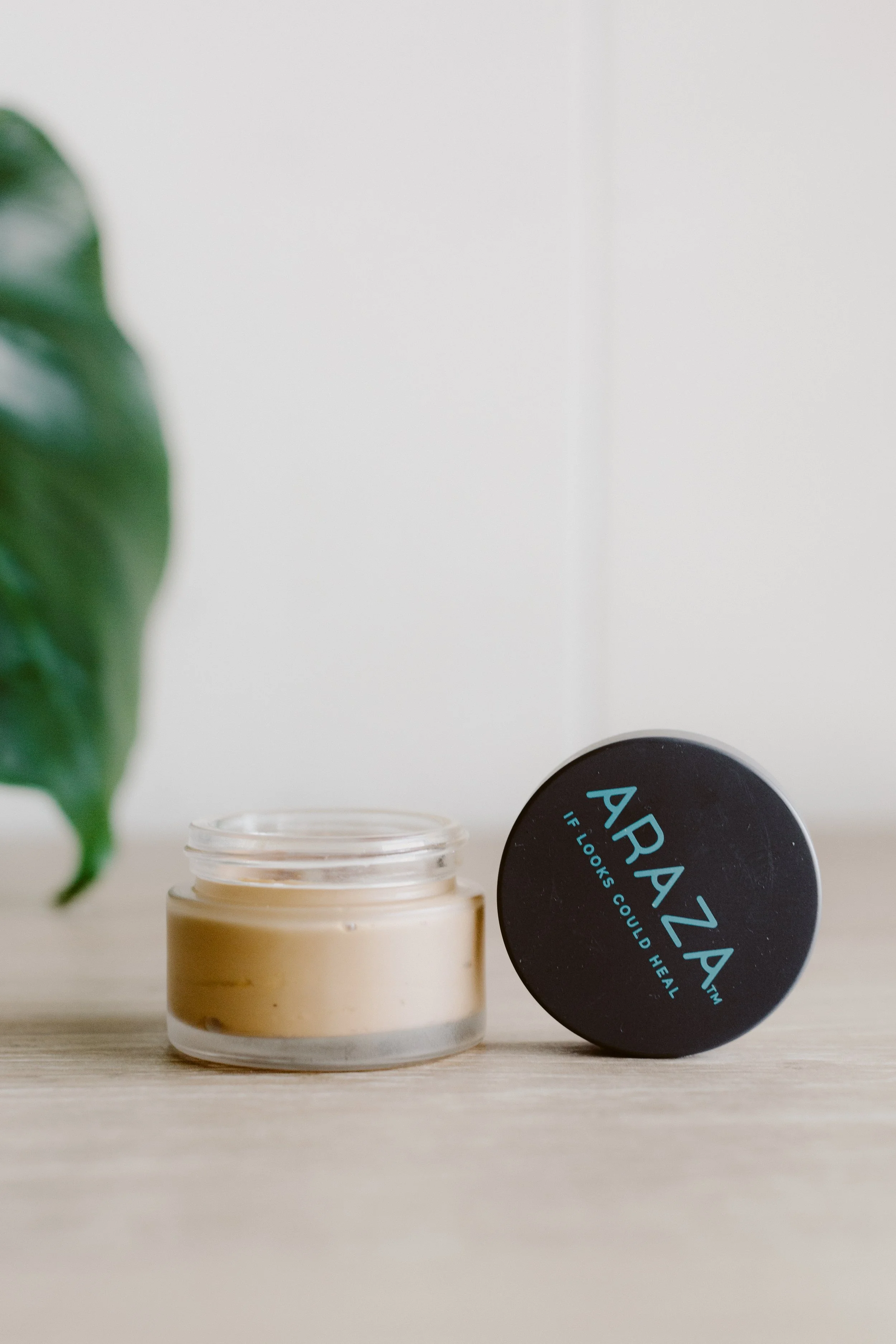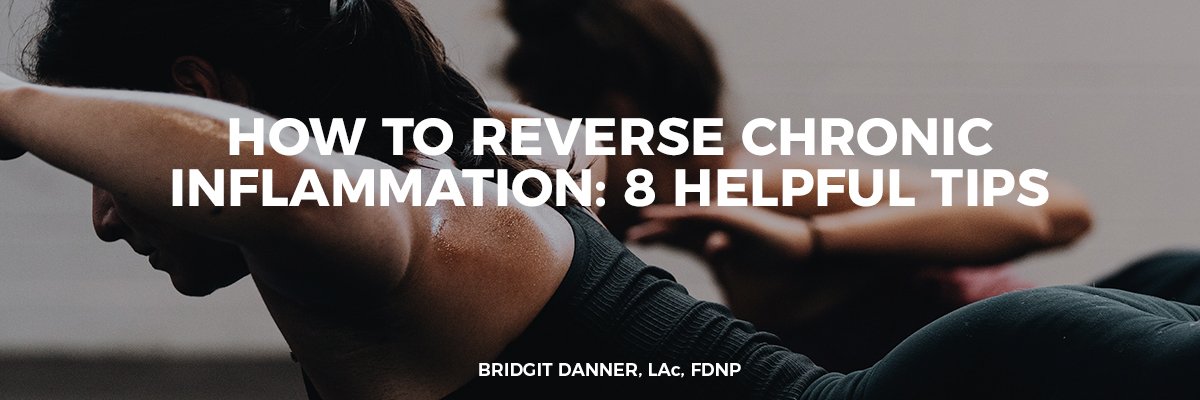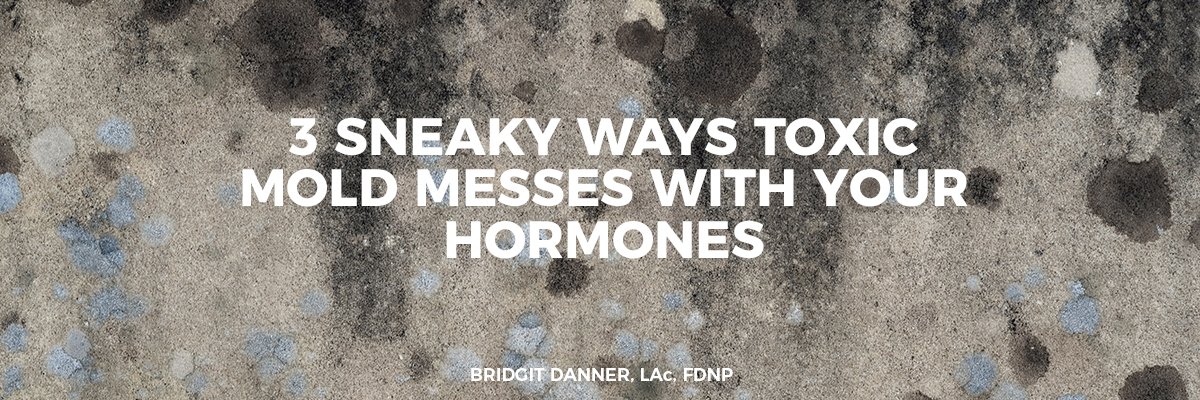Learn the Dangerous Ingredients that May Be Lurking in Your Sunscreen
Most types of sunscreen contain toxins that can easily penetrate the skin and cause inflammation, hormone imbalances, and increased toxic burden. Fortunately, there are safer options that still protect from harmful sun rays. Learn how to read your label and discover where to buy safer sunscreen.
Sunscreen 101
As we head into summer, it’s important to remember the impact of the sun’s rays on our skin. Though some sun is good for us (hello, vitamin D!), too much exposure can age our skin, burn us, and leave us at a higher risk for skin cancer.
Most of us have likely experienced a bad sunburn and are determined to protect ourselves better this year. So we turn to sunscreen in an effort to keep ourselves safe. But what if our sunscreen itself is dangerous?
Most sunscreens on the market contain chemicals that quickly penetrate our skin and disrupt our hormones. Since our skin absorbs much of what we put onto it, we need to guard against slathering ourselves with toxin-laden chemicals. Sunscreen can also provide a false sense of security. Some sunscreens may actually cause more harm than good!
Don’t Dismiss the “Sunshine Vitamin”
As mentioned above, healthy sun exposure produces vitamin D. This unique nutrient influences our health in many ways – it promotes strong bones, regulates the immune system, and balances hormones – just to name a few effects. Vitamin D deficiency impairs musculoskeletal, immune, and hormonal function and is associated with many chronic diseases.
While safe sunscreen is good for protecting your skin, it is also a factor in vitamin D deficiency, so it is important to spend the right amount of time in the sun. Keep in mind that there are many other barriers to vitamin D absorption including skin pigmentation, inflammation and obesity all of which are linked to a variety of other health problems.
During the summer months, you’ll want to soak up a healthy dose of the sunshine vitamin because after September, your skin produces minimal vitamin D at 37 degrees north or below 37 degrees south of the equator (1). You don’t need to go overboard to get a healthy amount of Vitamin D. Between 10-30 minutes of midday sunshine, a few times a week.
Sunscreen Toxins to Avoid
Before you cover yourself or your kids with sunscreen, grab your bottle and check the ingredients for these endocrine-disrupting chemicals:
Oxybenzone - This chemical is included in many sunscreens because it absorbs and filters UV rays. However, it is also penetrates the skin rapidly and mimics estrogen in the body, leading to hormonal imbalances and potential infertility. (2)
Octinoxate - This is another inexpensive UV filter, making it a popular choice for many sunscreens. Unfortunately, it is also a potent endocrine disruptor, posing problems for the thyroid and reproductive systems, among others. It is also linked to cell death and difficulty clearing toxins from the body. Octinoxate also causes complete coral bleaching at low doses. In other words, snorkeling with this sunscreen during a tropical vacation contributes to a weakened, diseased state in coral reefs. (3)
Homosalate - Again, this chemical is easily absorbed through the skin and is an endocrine disruptor. It’s also suspected to disrupt our detoxification processes by hindering the liver.
Retinyl palmitate - Retinyl palmitate is a form of vitamin A and a popular choice for sunscreen because it is believed to slow skin aging. The problem is, this chemical breaks down in sunlight, creating extra free radicals and leading to skin problems, even skin cancer. Additionally, retinyl palmitate is a powerful reproductive toxicant, which is, again, easily absorbed through the skin and can lead to hormonal imbalances.
Parabens - These chemicals are included in sunscreens because they delay bacterial and fungal growth. They are, however, also linked to endocrine disruptions, possibly leading to breast cancer and other hormonal difficulties. Again, this is not something we want to be inviting into our bodies!
Fragrances - These are also commonly found in sunscreens. They are added to make the product more appealing, but they also can cause hormonal disruption and toxin build up. If you see the word “fragrance” on a label, it could include any number of toxic chemicals that legally don’t have to be listed individually. (4)
As you might imagine, slathering our bodies with these chemicals throughout the summer can lead to or worsen hormonal imbalance and create a heavier toxic load for our bodies. Fortunately, we have other choices to help keep us safe from sunburn and hormone-disrupting chemicals.
The Dangers of Spray Sunscreen
When it’s time to apply sunscreen, it’s easy to grab an aerosol can and spray on the sunscreen. However, this can cause lung irritation.
To make it easier to use as a spray, the sunscreen is broken down into even smaller molecules that fill the air around us as we spray the skin. We (and anyone else around us) end up breathing the chemicals in the air, giving us even more exposure to the chemicals. Now we get them through our lungs and our skin! The use of aerosols has even been linked to a higher risk of breathing problems like asthma.
So if you choose a spray sunscreen, make sure it’s a natural one, and don’t use on yourself or your kiddos if it causes any breathing irritation.
Also realize that a spray sunscreen does still need to be rubbed in to work most effectively!
Staying Safe in the Sun
Fortunately, we have many options when choosing how to protect ourselves from the sun!
Choose a mineral-based sunscreen made with non-nano zinc oxide. Mineral-based sunscreens protect our skin by reflecting and scattering the sunrays. Make sure to pick sunscreen that uses non-nano zinc oxide, as the regular nanoparticles of zinc are small enough to penetrate the skin and cause problems.
Reapply sunscreen every few hours. Sunscreen does not last all day! Make sure to re-apply frequently if you are out in the sun for long periods of time.
Realize that no product can protect us 100%. While it’s good to protect ourselves with sunscreen, we can’t rely solely on sunscreen to keep us safe. It’s best to support our sunscreen with other sun safety measures.
Cover up. We can protect our skin by wearing long sleeves, using a hat, and taking other precautions to avoid direct sunlight as needed.
Eat a healthy diet. It shouldn’t be a big surprise that our skin will be healthier and less likely to burn quickly when we eat better! Make sure to include healthy fats, antioxidants, and an abundance of vitamins and minerals.
Listen to our podcast for more tips: Sun and Sunscreen: Skin Cancer Prevention This is a great interview with Dr. Keira Barr, a dermatologist with helpful ideas on managing sun exposure.
Protect Yourself with Safe Sunscreen
Beautycounter
Beautycounter has a lot of different safe sun skin care products. In addition to being major advocates of ingredient regulation within the beauty industry and their awesome return policy, I love Beautycounter products for so many reasons! There are over 1,800 harmful ingredients that are never used in their formulations, and each ingredient is scanned to ensure a high standard of clean beauty.
Some of my favorite sun care products from Beautycounter are:
Daily Sheer Defense for Face-a daily 25 SPF facial sunscreen that is lightweight and fast-absorbing and great for all skin tones
Mineral Sunscreen Mist-An all-over SPF 30 formula with non-nano zinc oxide and California Poppy that drys easily without oily residue
Mineral Sunscreen Stick-SPF 30 with a convenient application and smooth glide
Check out all of Beautycounter’s sun care products here. Their sunscreens are reef safe, so you can take them to Hawaii, and you can even pack the spray within a checked bag!
Remember, if you are planning a day at the pool or the beach, you need a stronger product to withstand the elements. Beautycounter’s mineral sunscreen products are water-resistant for a period of time.
In addition to sunscreen, Beautycounter offers skin care, hair care, and makeup that perform like any high-end product, but without disrupting your hormones or exposing you to heavy metals.
Araza Beauty
Araza Beauty is a small, sister-owned, paleo-centered company that I recently found. Their coconut oil-based foundation is naturally SPF 25 and blue light blocking. A little bit goes a long way.
They also offer natural cheek color, lip gloss, and skincare. They are offering 15% off to my community with the code BRIDGIT15.
One thing you’ll love is that you can order sample sizes for just a couple bucks to find your right shades and products!
SHOP ARAZA BEAUTY HERE
Bridgit Danner, LAc, FDNP, is trained in functional health coaching and has worked with thousands of women over her career since 2004. She is the founder of FunctionalDetoxProducts.com.
Grab Bridgit’s list of 5 Easy Detox Swaps for Women’s Health to start clearing out the toxins and reset your system to feel better today!













I was introduced to CoQ10 as an supplement about 4 years ago. At the time, I was in the middle of detoxing from mold, and I had already spent a lot of money on trying to heal. I was skeptical to try yet another thing, but the truth was that I was only about 50% better, which is not enough at all. So I tried it…